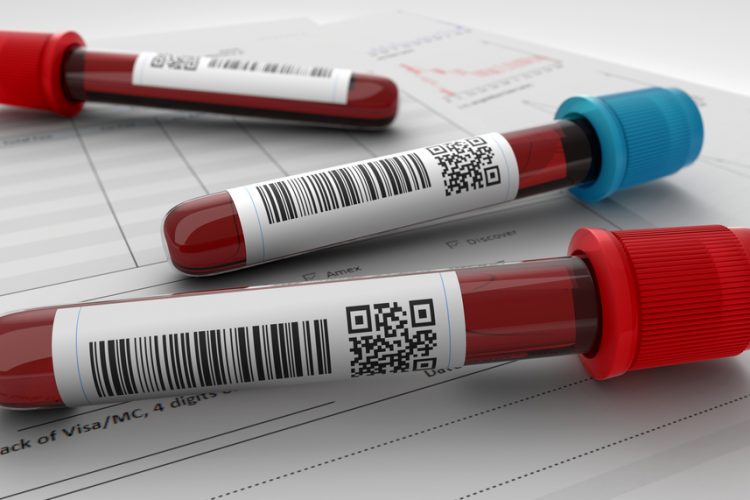Blood test can identify COVID-19 patients at high risk of life-threatening complications
The rapid blood test could be used to identify hospitalised COVID-19 patients who may benefit from investigational treatments and early interventions.
A blood test measuring levels of mitochondrial DNA (MT-DNA) can predict, within a day of hospital admission, which COVID-19 patients are at the greatest risk of developing severe complications or dying. The blood test can return results in less than an hour and has so far been tested in approximately 100 patients.
Researchers and medical professionals alike have said that one of the most vexing aspects of the COVID-19 pandemic is that they are unable to predict which patients will go on to develop severe disease, including complications that require ventilation, kidney dialysis or other intensive care. Because, while knowing a patient’s age and underlying medical conditions can help predict such outcomes, younger, seemingly healthier patients can also suffer severe complications which may lead to death.
To combat this, scientists at Washington University School of Medicine in St. Louis, US, have shown how a relatively simple and rapid blood test can predict which hospitalised patients are at the highest risk. The results of their study, involving 97 patients newly admitted to the hospital with COVID-19, was published in JCI Insight.
The blood test measures levels of MT-DNA, which normally resides within the energy factories of cells. If MT-DNA can be detected in the blood, it means that cells are undergoing a particular type of violent cell death, called necrosis.
“Doctors need better tools to evaluate the status of COVID-19 patients as early as possible because many of the treatments – such as monoclonal antibodies – are in short supply and we know that some patients will get better without intensive treatments,” said co-senior author Dr Andrew Gelman, the Jacqueline G. and William E. Maritz Endowed Chair in Immunology and Oncology in the Department of Surgery.
The researchers said the test could serve as a way to predict disease severity as well as a tool to better design clinical trials, identifying patients who might, for example, benefit from specific investigational treatments. They also said they would like to evaluate whether the test could be used to monitor the effectiveness of new therapies, as they presume effective treatments would lower MT-DNA levels.
“We will need larger trials to verify what we found in this study, but if we could determine in the first 24 hours of admission whether a patient is likely to need dialysis or intubation or medication to keep their blood pressure from dropping too low, that would change how we triage the patient, and it might change how we manage them much earlier in the disease course,” said co-senior author, Dr Hrishikesh Kulkarni, an assistant professor of medicine.
According to the team MT-DNA levels were, on average, roughly 10-fold higher in patients who were eventually admitted to the intensive care unit (ICU), intubated or died. Those with elevated levels were almost six times more likely to be intubated, three times more likely to be admitted to the ICU and almost twice as likely to die compared with those with lower levels. This association was independent of a patient’s age, sex and underlying health conditions.
Further, the test predicted outcomes as well as or better than existing markers of inflammation currently measured in patients hospitalised with COVID-19. Most other markers of inflammation measured in patients with COVID-19 are general markers of systemic inflammation, rather than inflammation specific to cell death, according to the researchers.
“Viruses can cause a type of tissue damage called necrosis that is a violent, inflammatory response to the infection,” Gelman said. “The cell breaks open, releasing the contents, including mitochondrial DNA, which itself drives inflammation. In COVID-19 patients, there has been anecdotal evidence of this type of cell and tissue damage in the lung, heart and kidney. We think it’s possible that measures of mitochondrial DNA in the blood may be an early sign of this type of cell death in vital organs.”
The researchers also emphasized that the test is quick and straightforward to perform in most hospital settings because it uses the same machinery that processes the standard PCR test for COVID-19. The method they developed allows mitochondrial DNA levels to be quantified directly in the blood, without requiring intermediate steps to extract the DNA from the blood. The technique also returns results in less than an hour.
Before applying for US Food and Drug Administration (FDA) approval, the team will need to verify that the test is accurate in a larger multi-centre trial. The scientists concluded that they have plans to expand the research to more sites.










